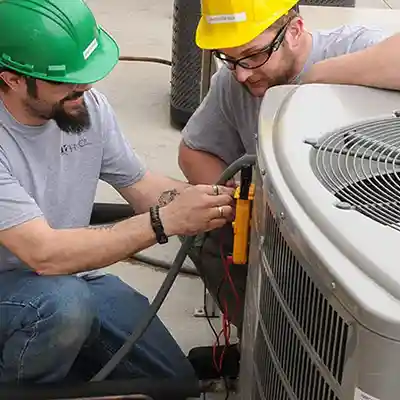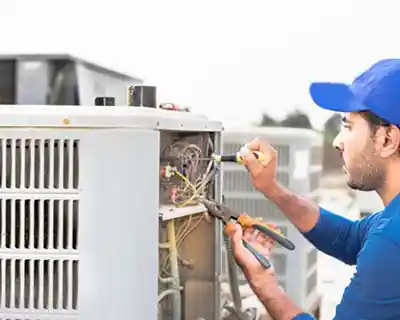
Table of Contents
- Factors Influencing HVAC Technician Salaries
- Average HVAC Technician Salaries Across the United States
- Comparing HVAC Technician Salaries by Experience Level
- Top Paying States for HVAC Technicians
- Salaries for HVAC Technicians in Major Cities
- Future Outlook for HVAC Technician Salaries
- How to Boost Your HVAC Technician Salary
- Conclusion
Factors Influencing HVAC Technician Salaries
Several factors can impact the salary of an HVAC technician, including:
- Geographic location
- Experience level
- Education and certifications
- Industry sector
- Company size
Average HVAC Technician Salaries Across the US
The U.S. Bureau of Labor Statistics (BLS) provides an extensive analysis of HVAC technician salaries, which reveals a wide range of earnings depending on various factors. As of 2021, the average annual salary for an HVAC technician in the United States is $53,410, which translates to an hourly wage of approximately $25.68. However, it is essential to examine the salary distribution to gain a more comprehensive understanding of the earning potential in this field.
Salary Distribution
The salary distribution for HVAC technicians is divided into percentiles, which provide a clearer picture of the range of earnings in the industry:
- 10th percentile: $32,120
- 25th percentile: $39,920
- 50th percentile (median): $50,590
- 75th percentile: $64,350
- 90th percentile: $80,820

Industry Sector and Salaries
HVAC technician salaries can also differ based on the industry sector in which they work. The top-paying sectors for HVAC technicians include:
- Electric power generation, transmission, and distribution: $79,230
- Wholesale electronic markets, agents, and brokers: $69,940
- Scientific research and development services: $69,070
- Direct insurance (except life, health, and medical) carriers: $68,710
- Natural gas distribution: $67,370
Understanding these salary distributions and the impact of industry sectors provides a more nuanced perspective of the earning potential for HVAC technicians across the United States. This information can help professionals make informed decisions about their career paths and negotiate competitive salaries.
Comparing HVAC Salary by Experience Level
Experience plays a crucial role in determining an HVAC technician's salary. Here is a breakdown of the average salary ranges by experience level:
- Entry-Level (0-2 years of experience): $35,000 - $45,000
- Mid-Level (2-5 years of experience): $45,000 - $55,000
- Experienced (5-10 years of experience): $55,000 - $65,000
- Senior-Level (10+ years of experience): $65,000 - $80,000
Top Paying States for HVAC Technicians
The following states offer the highest average salaries for HVAC technicians:
- District of Columbia: $67,100
- Hawaii: $65,320
- Alaska: $63,370
- Washington: $61,380
- Massachusetts: $60,580

Salaries for HVAC Technicians in Major Cities
The cost of living and job opportunities in major cities can significantly impact HVAC technician salaries. Here are the average salaries for HVAC technicians in some of the United States' largest cities:
- New York City, NY: $60,500
- Los Angeles, CA: $57,250
- Chicago, IL: $55,620
- Houston, TX: $53,570
- Phoenix, AZ: $52,430
Just Starting?
Try our Free HVAC Estimate Template
Future Outlook for HVAC Technician Salaries
The future looks promising for HVAC technicians in terms of salary growth and career prospects. According to the U.S. Bureau of Labor Statistics, the HVAC industry is expected to experience a 4% growth rate from 2019 to 2029, outpacing the average growth rate for all occupations. This steady growth can be attributed to the following factors:
Increased construction activities: The ongoing development of commercial and residential buildings will drive the demand for HVAC systems, requiring skilled technicians for installation, maintenance, and repair services.
Growing emphasis on energy efficiency: As businesses and homeowners seek to reduce energy consumption and costs, the demand for energy-efficient HVAC systems will increase, creating opportunities for technicians with expertise in this area.
Advancements in technology: The integration of smart home technologies and the Internet of Things (IoT) in HVAC systems will necessitate skilled technicians capable of working with advanced equipment and systems.
As a result of these factors, HVAC technicians can anticipate an upward trajectory in their salaries, along with ample opportunities to advance their careers in this dynamic industry.
How to Boost Your HVAC Technician Salary
To maximize your earning potential as an HVAC technician, consider the following strategies:
Pursue Advanced Education and Certifications: Obtain additional certifications, such as North American Technician Excellence (NATE), to demonstrate your expertise and stand out from the competition. Review our article on HVAC license requirements.
Develop Specialized Skills: Specializing in specific areas of the HVAC industry and HVAC manufacturers, such as commercial refrigeration or building automation systems, can lead to higher salaries.
Gain Experience: Acquire hands-on experience by working on a variety of projects, systems, and equipment. As your experience grows, so will your salary.
Network and Join Professional Associations: Networking within the industry and joining professional associations, like the Air Conditioning Contractors of America (ACCA) or Refrigeration Service Engineers Society (RSES), can help you stay informed about job opportunities and advancements in the field.
Consider Self-Employment: Learning how to start a HVAC business and HVAC marketing or working as an independent contractor can offer increased earning potential, but it also requires strong business acumen and customer service skills.
Conclusion
HVAC technician salaries can vary based on factors such as location, experience, education, and industry sector. To increase your earning potential, consider pursuing advanced certifications, specializing in niche areas, gaining hands-on experience, and networking within the industry. As the demand for skilled HVAC technicians continues to grow, there are ample opportunities for professionals in this field to secure competitive salaries and enjoy a fulfilling career.
